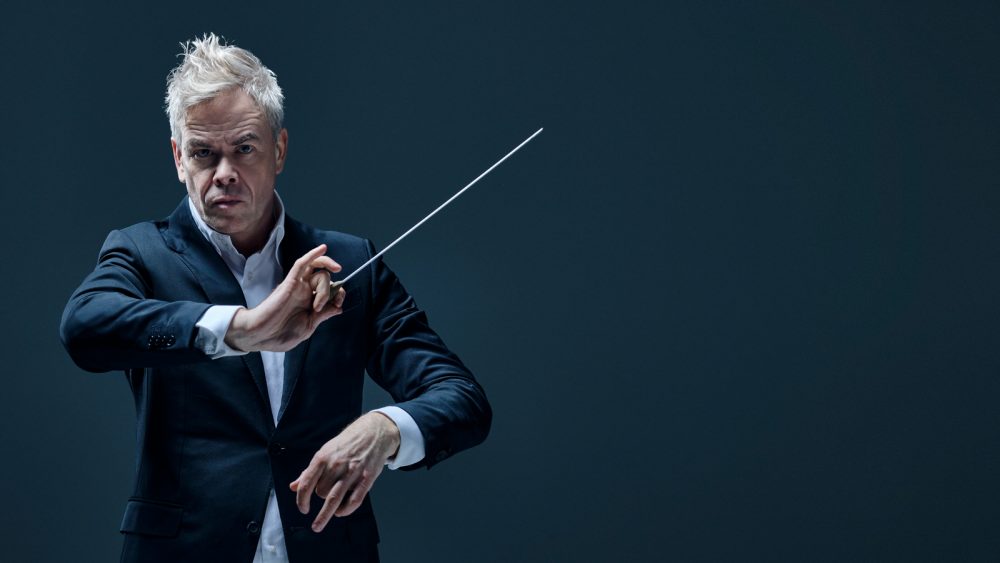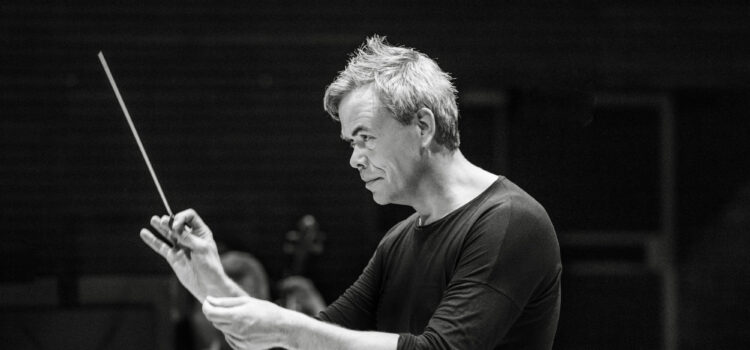By CB Adams
Suspension of disbelief is a term usually associated with works of fiction, film or theater. It’s a term that got its start way back in 1817 when Samuel Taylor Coleridge wrote of the “…suspension of disbelief for the moment, which constitutes poetic faith.”
It’s high time we apply this term to music. This was certainly applicable to the Saint Louis Symphony’s diptych program on Oct. 15-16 of Sergei Rachmaninoff’s Piano Concerto No. 2 and John Corigliano’s Symphony No. 1. When a conductor and orchestra can perform in a way that disappears themselves, that’s suspending the reality that people are only just rubbing strings and blowing into mouthpieces.
The program, guest conducted by Hannu Lintu, was worthy of Coleridge’s “poetic faith” with the shared maelstrom of themes that rose and fell in tandem – a perfect storm. The suspension of disbelief came after I forgot that there were musicians on stage and entered into my own reveries elicited by the drama of music itself. In service to this review, I had to keep reminding myself to stop my mind’s reverie and pay attention to who was doing what on stage.
Some of this is attributable to conductor Lintu, a regular guest artist with the SLSO since 2013. I was reminded of Lintu as I watched a sneak peek of the new film “Tár.” In it, a world-class conductor played by Cate Blanchett says, “If you want to dance the mask, you must service the composer. You’ve got to sublimate yourself…You must, in fact, stand in front of the public and God and obliterate yourself.”
That might be a bit hyperbolic, but Lintu certainly serviced the strengths of a program that put Rachmaninoff and Corigliano – the old and the new – into lockstep.
Lintu was sometimes metronomic, sometimes feet-together obedient and sometimes commanding, but always he was the conduit for music to swell unimpeded over him and into the audience.
Also in service to the music was Gerstein, the featured pianist on Rachmaninoff’s No. 2. Gerstein delivered a taut, polished, restrained performance that avoided any exaggeration that the composition can encourage. Just think back to 1975 and Eric Carmen’s hit “All By Myself,” which liberally borrowed from No. 2’s Adagio sostenuto. Or the soundtracks to “Brief Encounter” and “Fifty Shades of Grey.”
Gerstein’s performance was noteworthy for his ability to balance lyrical nuance and athletic discipline to a well-known and -loved composition.
A great performance is always a team effort, and the orchestra rippled through Rachmaninoff’s alternations of sweet melancholy and darkness. On par with Gerstein’s solos were performed by Matthew Roitstein (principal flute), Scott Andrews (principal clarinet) and Thomas Jöstlein (associate principal horn).
Creating a program that positions a beloved classic with a newer composition is to risk a “bait and switch” response. But when it works, it can work charms as did placing Rachmaninoff and Corigliano, the latter of which is a celebrated orchestral composer whose works have been performed by the best international ensembles. This was my introduction to Corigliano and I’m all the better for it. The genesis
of Symphony No. 1 was Corigliano’s deeply personal response to the HIV/AIDS pandemic, but the music enabled me to surf the dramatic crests and delicate troughs of its waves.
Perhaps because of the SLSO’s fine performance that relied on the talents of approximately 110 onstage musicians , I can imagine only listening to No. 1 live. It’s hard to think of a recording and stereo system capable of presenting this composition in all its highly charged power and range, evident even in the title of the opening movement, “Apologue: Of Rage and Remembrance” and in Corigliano’s description of the second movement’s ending as a “brutal scream” and the Epilogue’s ending with a cello duet performing a
slow diminuendo that shimmers with a single, fading note.
That cello duet, performed with grace and emotion by Danny Lee (principal cello) and Melissa Brooks (assistant principal cello), was a highlight of the entire performance, made stronger by ending the program of poetic faith and promise.

Hannu Lintu, guest conductor

CB Adams is an award-winning fiction writer and photographer based in the Greater St. Louis area. A former music/arts editor and feature writer for the St. Louis Globe-Democrat, his non-fiction has been published in local, regional and national publications. His literary short stories have been published in more than a dozen literary journals and his fine art photography has been exhibited in more than 40 galley shows nationwide. Adams is the recipient of the Missouri Arts Council’s highest writing awards: the Writers’ Biennial and Missouri Writing!. The Riverfront Times named him, “St. Louis’ Most Under-Appreciated Writer” in 1996.

